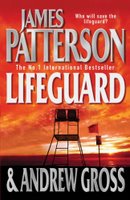 Horus Rising is the first book in a trilogy from Black Library that chronicles the events of the Horus Heresy, a time when humanity was ripped apart in an intergalactic civil war, under the leadership of Warmaster Horus, one of the Emperor's Primarchs and formerly the Emperor's favourite.
Horus Rising is the first book in a trilogy from Black Library that chronicles the events of the Horus Heresy, a time when humanity was ripped apart in an intergalactic civil war, under the leadership of Warmaster Horus, one of the Emperor's Primarchs and formerly the Emperor's favourite.In Horus Rising, the Warmaster has not yet fallen from grace - indeed, he and his private legion of warriors, the Luna Wolves, are a proud and pure as can be. Focussing on the experiences of Garviel Loken, captain of the Luna Wolves' Tenth Company and his rise to prominence in the Warmaster's private council (the Mournival), it paints a nice picture of the time, while avoiding cliches and the possibility of letting tales of the Primarchs (genetically engineered super-humans twice as tall as your average man) get out of hand - one, Sanguinius, has wings, so if it had focussed on him, then it could have become a little tiresome.
Dan Abnett, who has also written Black Library's highly praised (and rightly so) Gaunt's Ghosts series as well as stories for 200AD's Sinister Dexter, and presently Superman for DC Comics, shows he has only grown as an author. The pacing, the prose and story arc are flawless; never rushing to get to a certain point, never giving away too much, and never falling into clumsy or over-dense narrative.
One of the most interesting elements of the novel is the inclusion of the remembrancers - effectively journalists of this time, allowed passage with the Crusade fleet for the first time, with before unheard of access to the battlefields and commanders. They bring a very human element to the proceedings, and through them, the warriors of the Luna Wolves - especially Garviel Loken - confront their position as genetically engineered killing-machines, and their blind faith to being completely, unequivocally right in every way.
With the next two instalments being written by different authors (Graham McNeill's "False Gods", and Ben Counter's "Galaxy In Flames: The Heresy Revealed"), one can only hope that they do this beginning justice, for truly this is a great Science Fiction novel, and an important event in the Black Library's history. Hopefully, we'll be able to get you reviews of these two novels as soon as possible.
From brutal, fast-paced battle sequences, to introspective and personal moments between Loken and either his fellow captains or Mersadie Oliton, his defacto personal remembrancer, and with emotion and humour in decent amounts, Horus Rising has everything you could want from a novel.
www.blacklibrary.co.uk

